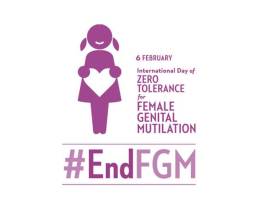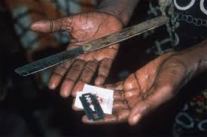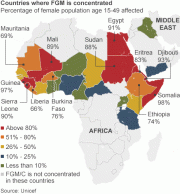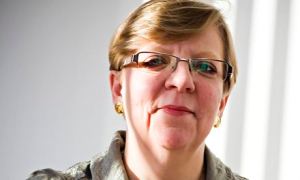 As you may know, on ‘let’s talk!’ we raise awareness of the campaign to end Female Genital Mutilation (FGM) and tomorrow marks another important stage in the process to end FGM worldwide. The theme of this year’s International Day of Zero Tolerance of FGM theme is around aiming to achieve global goals of eliminating FGM by 2030.
As you may know, on ‘let’s talk!’ we raise awareness of the campaign to end Female Genital Mutilation (FGM) and tomorrow marks another important stage in the process to end FGM worldwide. The theme of this year’s International Day of Zero Tolerance of FGM theme is around aiming to achieve global goals of eliminating FGM by 2030.
Today, Avon & Somerset Constabulary, made a statement, confirming their commitment to the campaign and updated us on the steps taken locally.
Police & Crime Commissioner Sue Mountstevens is quoted as saying:
“Tackling domestic and sexual abuse, which includes FGM, is a priority for me and I welcome the continued collective effort being made to focus on the issue and help protect the women and girls at risk of this most intrusive and damaging practice.
“Even before the reporting of FGM became mandatory, a lot of work has taken place to train health care professionals and teachers in recognising the signs of this horrific crime. I welcome both the efforts to raise awareness of this form of child abuse and the changes in legislation to safeguard those known and at risk of FGM.
“I am very clear that FGM is child abuse and must be treated as such. We must never lose sight that FGM is a violation of human rights that has lifelong health and emotional consequences. Working together we must eradicate this disgraceful crime for good.”
It was good to read that the following action has already been taken within the force:
- The training of up to 80 Somerset GPs on FGM awareness and obligations surrounding mandatory reporting.
- Having trained professionals working in the areas of safeguarding and mental health in Somerset
- Being part of a focus group advising staff from the Prime Minister’s Cabinet Office re what is working well and not so well in tackling FGM
- Supported day-long multi-agency enhanced training commissioned by the Bristol Safeguarding Children’s Board (BSCB)
- Help to train officers and detectives with the States of Jersey Police on how they can use their existing legislation to help children at risk of FGM
- Attendamce at an event organised by Bristol University’s Feminist Society, in conjunction with the Integrate Bristol charity, to increase FGM awareness, which was attended by an audience including trainee teachers, doctors and lawyers
We will obviously be keeping an eye on progress and hope that, even before 2030, this barbaric procedure is banned worldwide.











